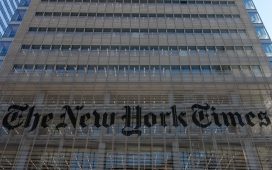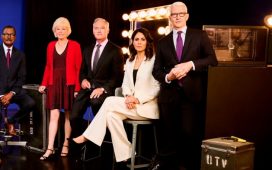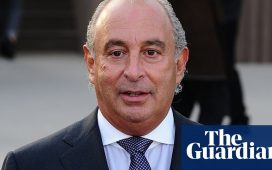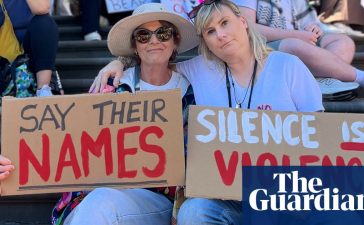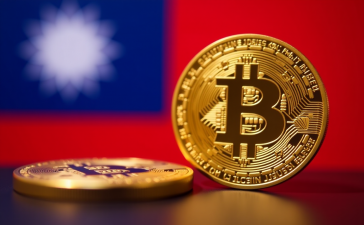With Britain’s Telegraph Media Group in its sights, the oil-rich emirate of Abu Dhabi is closing in on its most audacious push into English-speaking media since the launch of state-owned daily The National 15 years ago.
Back then sky-high salaries lured senior journalists to what was being touted as “the New York Times of the Middle East”. The publication’s early years gently pushed the traditional boundaries of press freedom in the Gulf, exploring some sensitive subjects avoided by most.
But coverage of a ruling family member accused of torture and Dubai’s debt woes during the global financial crisis triggered backlash with the regime. While the newspaper has since established its reputation as one of the most professionally produced publications in the Middle East — a go-to news source for diplomats and executives — it is seen as a mouthpiece for Abu Dhabi’s worldview.
The National “is distributed in the Middle East and it is reflective of the dominant culture and narratives in its audience — as is the case of UK titles as well”, said Alice Enders, a UK media analyst.
Abu Dhabi’s record in media has come under close scrutiny with the prospect of a deal that would give an investment vehicle funded and majority-owned by a senior royal in the Middle Eastern regime control of an influential newspaper in the UK, with strong ties to the British establishment.

US-based RedBird IMI, of which Abu Dhabi owns 75 per cent, has offered to repay the Barclay family’s £1.1bn in debt owed to Lloyds Banking Group, which put the media group into receivership last summer. RedBird IMI, headed by former CNN boss Jeff Zucker, would then convert the loan into ownership of Telegraph Media Group, which comprises the daily newspaper and the Spectator weekly magazine.
The possibility that “the Torygraph” — as it has been dubbed — could soon be in the hands of owners with links to the Gulf for the first time in its 168-year history has sparked concern among members of the ruling Conservative party.
Rival bidders, some of whom had considered tapping Middle Eastern money, have sounded the alarm bell over freedom of speech. Ministers are gearing up to probe the loan for equity offer, with questions over whether the use of overseas sovereign wealth to acquire an influential media group poses a risk to British national interests.
Announcing that she was “minded” to scrutinise the deal, Lucy Frazer, culture secretary, pointed to the ownership of IMI by a member of the UAE government, and raised concerns that RedBird IMI had “links to media organisations that have been critiqued for partisan views”.
Human rights groups point to the UAE’s intolerance for domestic dissent and crackdowns on freedom of speech — often reflected in its control of local media businesses.
The push into overseas media assets via the RedBird IMI venture fits within the emirate’s economic diversification strategy, with the additional lure of soft power, influence and the projection of Abu Dhabi’s growing role across the global economy.
Abu Dhabi has sought to invest windfall hydrocarbon revenues into new sectors of the global economy, from healthcare and technology to logistics and financial services.
“The core principle of Middle East investors in media and other assets in the UK is to recycle the gusher of petrodollars to safe haven countries,” Enders said.

IMI, the Abu Dhabi entity that according to filings in the US owns 75 per cent of RedBird IMI, is controlled by Sheikh Mansour bin Zayed al-Nahyan, a billionaire investor who also owns Manchester City football club. Sheikh Mansour is a vice-president of the UAE, which is ruled by his brother, Sheikh Mohammed bin Zayed al-Nahyan.
But the company is overseen by Sultan al-Jaber, a technocrat who also manages the national oil company and is heading the UAE’s hosting of the COP 28 climate summit next week.
IMI, which is required to consent to any investment or divestment decisions by RedBird IMI, controls several domestic companies, including The National, Sky News Arabia, an Arabic-language rolling news joint venture with the UK’s Sky, and online platform CNN Business Arabic.
The National newspaper now commonly toes the government line and self-censors around nebulous “red lines” of banned coverage, according to people close to the group.
IMI’s other ventures have been slower to gain traction in the region. Sky News Arabia, IMI’s challenger in the Arabic TV news market, has failed over the past decade to challenge the dominance of the regional leader, Qatar’s Al Jazeera, or Saudi-owned Al Arabiya.
Abu Dhabi entities have, however, also built commercial partnerships with international media brands, such as CNN and CNBC, to expand the volume of international reporting out of the capital. Again, analysts point to the “soft power” benefits of such tie-ups.
Beyond the UAE’s record in media, UK politicians will probe the influence it would have on the Telegraph. Zucker told the FT that Abu Dhabi was bound by legal agreement to not interfere with the running of its assets — only on the decisions to invest or sell.

The Telegraph would be editorially separate from Abu Dhabi financiers and run and managed by US media veterans such as Zucker who want to build its brand in the US.
RedBird IMI’s representatives — which include former Ofcom boss Ed Richards — have sought to reassure the UK government over editorial independence, including by pledging a legally binding joint venture shareholders agreement and a separate legal undertaking to the UK government.
Those close to the group insist any intervention in the running of the newspaper would be counterproductive and damaging to the brand.
“Our job as private equity investors is to grow the value of our businesses, not to influence content or editorial direction,” said Gerry Cardinale, founder of RedBird.
Sheikh Mansour has been hands off at Manchester City, those close to RedBird IMI note. “Abu Dhabi is politically astute — they have been good partners of Manchester. They already partner with top-tier, blue-chip people in Hollywood and sport.”
However, the club is chaired by Khaldoon al-Mubarak, who heads one of the emirate’s investment vehicles, Mubadala. Under Abu Dhabi’s ownership, City has won trophies and reported record profits but also faces numerous allegations of financial rule-breaking over more than a decade, charges it strongly denies.
Another person involved in the process said that the government was in a delicate position given its efforts over recent years to strengthen ties with the Gulf nation. The Foreign Office has provided advice to DCMS over the diplomatic aspects of a deal.
Investments into the UK have surged since the UK established a UAE sovereign partnership, with more than the $10bn planned over five years deployed within the first two years, people aware of the matter said.
People close to the sale said that the UK government would want to avoid a clash next week when it hosted an investment summit to attract overseas money. The event is sponsored by Lloyds, where representatives of Abu Dhabi are also expected to attend.
An initial £800mn was agreed from Mubadala to invest in UK life sciences, including in some of the UK’s most promising start-ups.
“There is so much Abu Dhabi money around the UK that it is difficult to say what’s acceptable and not,” one person said. “The rub will be whether the government is comfortable with a member of the royal family of a Gulf state co-owning a UK media company — and that will come down to the assurances given.”
Additional reporting by Josh Noble in London

